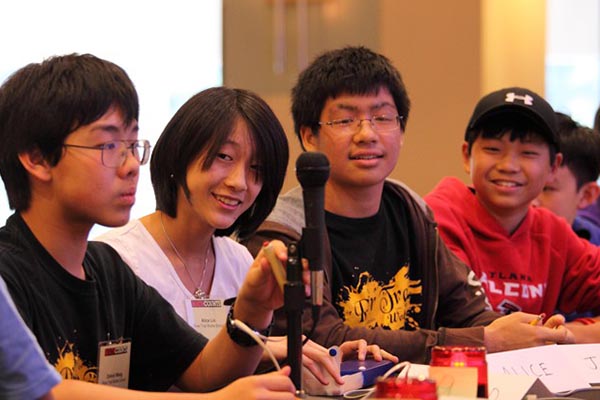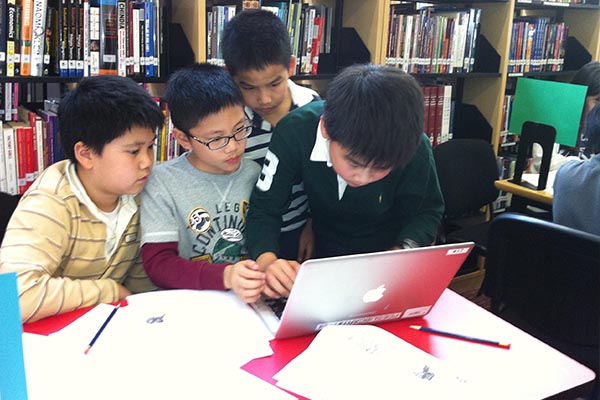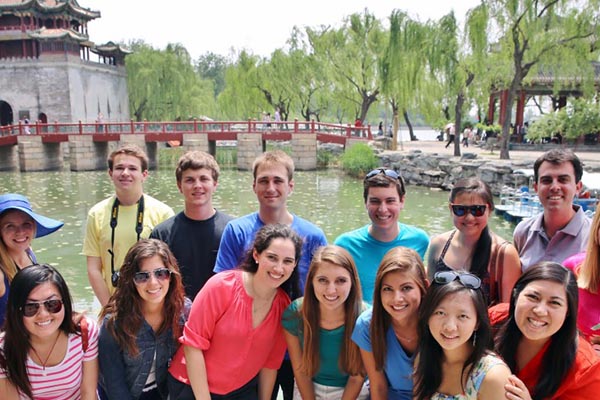THE MATHEMATICS CHALLENGE
This RHT Education initiative is designed to place visiting students of Mathematics at the cutting-edge of Chinese instruction. The Mathematics Challenge combines Chinese classes delivered by key Chinese instructors, peer projects with Chinese students and culminates in a Mathematics Challenge. There are, of course, sight-seeing opportunities within the itinerary. Key features of the program include: classroom sessions, cultural activities, first class university visits, guest lecturers and peer interaction.
PROGRAM OUTLINE
 |
 |
 |
|
 |
Arrive Shanghai | Arrive Shanghai Transfer to hotel |
Cruise Huangpu River |
 |
Orientation & briefing Transfer to Nanjing |
Sight-seeing: Zhouzhuang water city and silk factory | Welcome dinner and meet Chinese peers |
 |
Unit 1: Learning Math the Chinese way (theory) | Unit 1: Learning Math the Chinese way (practical) | Unit 1: Learning Math the Chinese way (review) |
 |
Unit 1: Learning Mathematics the Chinese way (theory) | Unit 1: Learning Mathematics the Chinese way (practical) | Unit 1: Learning Mathematics the Chinese way (review) |
 |
Excursion 1 Topic: Innovative Thinking |
Excursion 1 University visits |
Guest lecturer and workshop 1 Mathematics professor |
 |
Unit 2: Advanced Mathematics (theory) | Unit 2: Advanced Mathematics (practical) | Unit 2: Advanced Mathematics (review) |
 |
Unit 2: Advanced Mathematics (theory) | Unit 2: Advanced Mathematics (practical) | Unit 2: Advanced Mathematics (review) |
 |
Excursion 2 Topic: Careers |
Excursion 2 Technology park visit (all day) |
Guest lecturer and workshop 2 Research & Development expert |
 |
Sight-seeing | Sight-seeing (all day) | Traditional performances |
 |
Unit 3: Mathematics Competition (strategies) | Unit 3: Mathematics Competition (practice) | Unit 3: Mathematics Competition (preparation) |
 |
Excursion 3 Topic: Emerging China |
Excursion 3 Enterprise visit (all day) |
Guest lecturer and workshop 3 Chinese Mathematics champion |
 |
First day of competition | First day of competition | Competition preparation |
 |
Second day of competition | Second day of competition | Free-time |
 |
Sight-seeing | Sight-seeing | Farewell dinner Awards Ceremony |
 |
Airport transfer Depart Shanghai |
Airport transfer Depart Shanghai |
ITINERARY BY NUMBERS
| Name | Total |
|---|---|
| Hours of instruction: | 46 (Unit 1 = 13, Unit 2 = 13, Unit 3 = 8, Unit 4 = 12) |
| Hours of integrated activities: | 26.5 (Unit 1 = 8, Unit 2 = 8, Unit 3 = 2.5, Unit 4 = 8) |
| Hours site excursions: | 18 (Project 1 = 6, Project 2 = 6, Project 3 = 6) |
| Hours of guest lecturers: | 7.5 (lecturers 1 hour + related workshops 1.5) |
| Competition: | 8 hours |
| Cultural events: | 20 hours |
LEARNING LANDSCAPE

The incorporated coursework is highly interactive facilitator-led training. The sessions are designed for up to 25 participants per class, but the course can be used with fewer or more participants, with appropriate adjustments in material and space requirements.
The classroom sessions are designed to be used in a variety of formal and informal settings.
To make the training accessible worldwide, the assumption was made that typical classrooms will have access to technology, but have access to basic instructional supplies (paper, pens, pencils, markers, or colored pencils, tape, scissors, glue, flip chart paper and/or black or white boards, etc.). Suggestions are made within the sessions for low-cost or no-cost alternative materials, or for reducing the amounts of paper used for instructional resources.
For room setup, participants have worktables to conduct their small-group discussions and other activities, although the sessions can be adapted to allow for situations where this is not possible. In general, there IS ample space to configure small groups and teams around the room as needed. Facilitator notes and suggestions are included when such adaptations ARE necessary.
INSTRUCTIONAL/TRAINING TECHNIQUES

This courses use a range of methodologies that align with the principles of the experiential learning approach. With an emphasis on interactivity among participants, the courses incorporate the following techniques and methodologies:
TEACHERS

The teachers will be provided by RHT Education with support mentors and assistants drawn from various organizations and the participating school/s. The program staff include:
EXAMPLE TIMELINE
| Time | Program |
|---|---|
| Zero minus 6 months | Develop draft program |
| Zero minus 5 months | Finalize program |
| Zero minus 4 months | Distribute program to foreign organizations and Chinese schools |
| Zero minus 3 months | Confirm attendees |
| Zero minus 2 months | Finalize documentation for visas |
| Zero minus 1 month | Distribute pre-program instructions and pre-reading |
| Zero hour | Commence program |
COMPONENTS
The entire program has an integrated approach to learning, combining a variety of components that lead towards greater understanding of what it takes to be leader.
i.Sessions
There are four Units which each will challenge the students to better understand their own situation;
ii. Activities
Within each Unit are activities designed to enhance the lessons learned during each Session.
iii.Visits
There will be three visits to explore Applied Mathematics in the context of contemporary China.
iv.Guest lecturers
There will be three high-profile guest lecturers who will lecture and then conduct a workshop on the three of the most significant Mathematics-related topics affecting the community in modern China.
v.The Competition
The competition will take place over two days with a feature of the program being some helpful pointers given by an international champion.
vi. Sight-seeing
Visits to local cultural sites all have ties to the program and will form the basis of some group project work.
